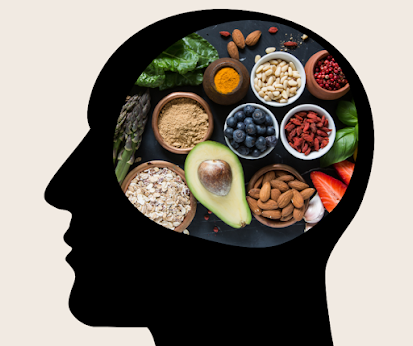The Link between Nutrition and Mental Health
When we think about mental health, we
often associate it with therapy, medication, and self-care practices. However,
one aspect that is often overlooked is the link between nutrition and mental
health. What we consume not only affects our physical health but also has a
significant impact on our mental well-being. As a psychiatrist in Indore, I have seen firsthand
the importance of a healthy diet in managing and improving mental health.
Our brain, just like any other organ
in our body, requires certain nutrients to function properly. These nutrients,
including vitamins, minerals, and essential fatty acids, play a crucial role in
regulating our mood, cognition, and overall mental health. A deficiency in these
nutrients can lead to various mental health issues, including depression,
anxiety, and even schizophrenia.
One of the key nutrients for mental
health is omega-3 fatty acids. These essential fatty acids are found in foods
such as fish, nuts, and seeds and are known for their anti-inflammatory
properties. Research has shown that individuals with higher levels of omega-3
fatty acids in their diet have a lower risk of developing depression and other
mental health disorders. On the other hand, a deficiency in omega-3 fatty acids
has been linked to an increased risk of depression and other mood disorders.
Another essential nutrient for mental
health is vitamin B. This group of vitamins is responsible for energy
production and the production of neurotransmitters, which are chemicals that
regulate our mood and emotions. A deficiency in vitamin B has been linked to
symptoms of depression, anxiety, and even psychosis. Foods rich in vitamin B
include whole grains, leafy greens, and lean proteins.
In addition to specific nutrients,
our overall diet also plays a crucial role in our mental health. A diet high in
processed foods, sugar, and unhealthy fats has been linked to an increased risk
of mental health issues. These foods can cause inflammation in the body and disrupt
the balance of neurotransmitters, leading to symptoms of anxiety and
depression. On the other hand, a diet rich in whole, unprocessed foods, such as
fruits, vegetables, and lean proteins, has been shown to have a positive impact
on mental health.
Also Read: Depression Treatment in Indore
Furthermore, our gut health has a
significant influence on our mental well-being. The gut is often referred to as
our "second brain" as it produces many of the same neurotransmitters
found in our brain. Therefore, maintaining a healthy gut micro biome through a
balanced diet can improve our mood and overall mental health.




Comments
Post a Comment